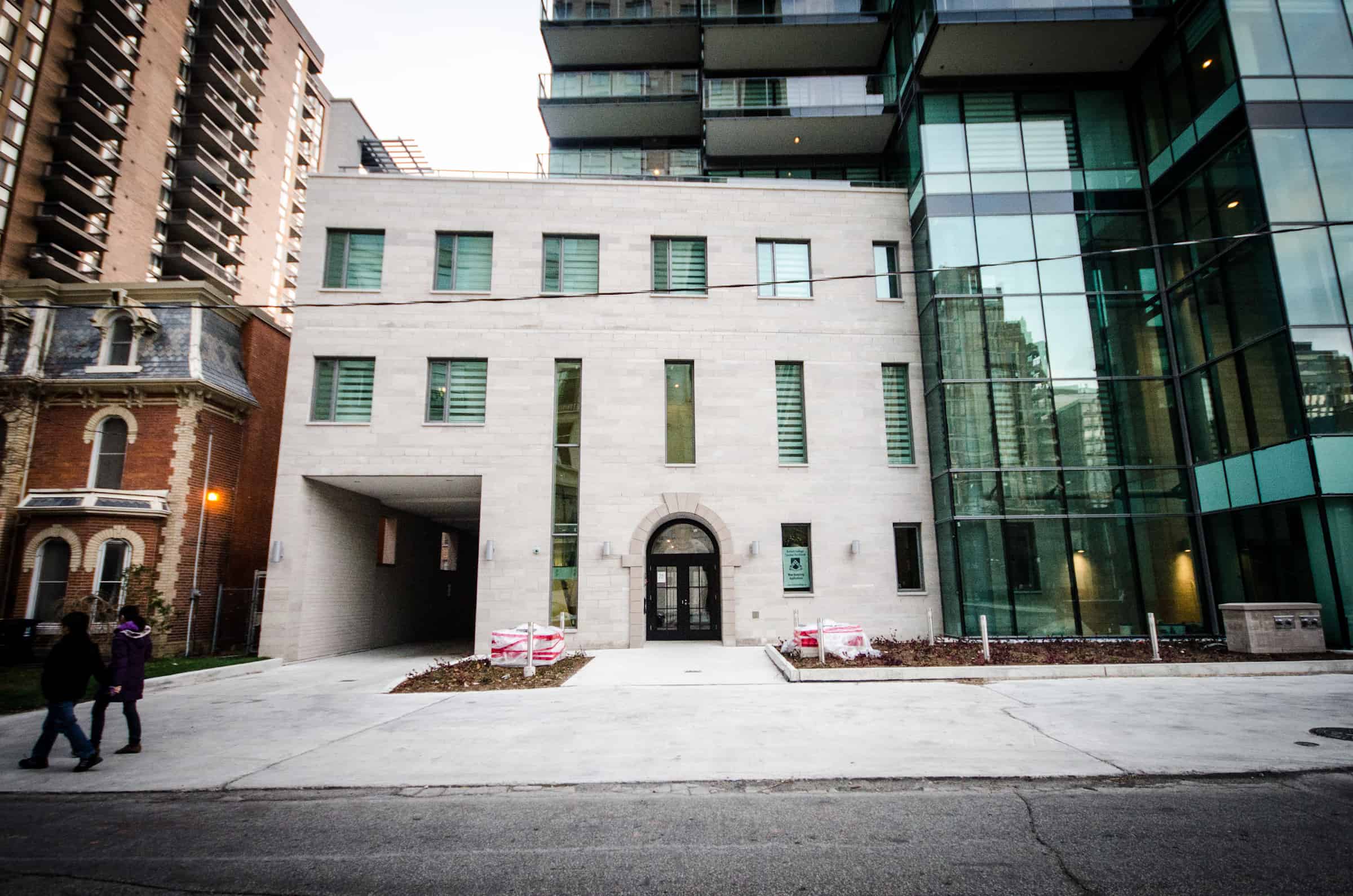Kintore College, a new women’s residence situated in the first four stories of a condominium on Charles Street, quietly opened its doors in September of this year.
The residence has been in various stages of development since the idea for its establishment was conceived in the mid-1990s. A spokesperson for the University of Toronto, Laurie Stephens, explained that the residence was one of several independent living spaces near campus, and was unaffiliated with the university.
Kintore instead exists under the purview of the non-profit association Promotion of Education and Values (PEV), which aims to promote women’s education. “In 1997 we purchased the property, which had a building on it already, from the United Church,” said Virginia Nanouris, project manager for PEV. At that time, the site housed the Lycée Française.
“After doing some studies, it seemed the best way to go about it would be to demolish and rebuild,” Nanouris explains. Due to the relatively small size of PEV, it became necessary to find outside assistance to complete the project. Nanouris says of the somewhat peculiar arrangement that resulted, “We partnered with a developer, and negotiated that they would get the air rights if they built this facility for us free of charge.”
The college is mostly separated from the apartments above it — it has its own entrance, security, and elevators.
Unlike troubled attempts to build the Knightstone residence in recent years, Nanouris notes that while complex, the project was largely free of snags: “We met with most of the neighbours at the time, along with the developer, and people didn’t object to a student residence, especially because it’s already close to Jackman and Loretto [Victoria College buildings].”
One difficulty was that the residence was not completed in time for September, leading to decreased enrollment. “We had many inquiries, but some of the students’ choices were affected by the fact that they couldn’t see the facilities beforehand,” said Crystal Mason, Kintore College’s director. Delays in finishing the residence space led to the students who opted to attend being housed in the Holiday Inn until mid-October. “We won’t have this problem next year,” Nanouris says.
While Kintore College has ties to the Catholic Church (its website states that “optional spiritual activities are entrusted to Opus Dei,” and its facilities include a chapel which holds daily mass), Mason emphasizes that religion is not a matter of obligation for residents: “We’re open to absolutely everyone … there doesn’t have to be any particular religious affiliation.” Catholic activities are offered, but Mason says that the residence administration’s priority is to “foster a close-knit community.” She adds, “attendance is open to any female student attending a post-secondary institution.”
Current residents include students at U of T, Ryerson, George Brown, and other educational institutions. “We have students from, I think, every continent,” says Mason.
Nanouris and Mason also hope that the college will become a hub of community engagement. Lectures are offered (“Is Evolution Compatible with Creationism?” was letting out as I visited the facility, though not all lectures are religious), and there are also several mixed-purpose rooms available for students not attending Kintore to use. “Students always need more space — not just study space, but space where they can talk or discuss ideas. Education is not just in the classroom, but involves engagement with others,” Mason says.
In spite of a decline in women’s-only residences in recent years, Nanouris believes there are benefits to a single-sex environment, and keeping an emphasis on women fostering the development of other women. “The residence is an extension of this idea. Women can thrive here without being self-conscious. They have their own private space.”
“They have a lot of potential, and we want them to bring to bear their talents on society,” Nanouris goes on. “As women, we understand women, so we’re in a good position to help them do so.” The parent charity, PEV, as well as the college’s administration, are primarily female in membership. While acknowledging that Kintore may not be what everyone wants, Mason suggests, “it’s good to have another option.”
In many ways, Kintore College provides a unique option. In addition to its small size and composition, it has a distinct ethos. Life for its students is highly structured around shared meals and activities. Perhaps most unusually, Kintore students are subject to curfews. When asked how this played out in a modern context, Mason noted that some students were dissuaded by the notion. However, she explained that the role of the curfew was more to do with the communal nature of the residence, saying, “we want to show care for our students and safety. Sometimes people can’t make it back for whatever reason, and that’s fine — it’s not an iron rod.” She also noted that this kind of structure helps students to better organize their lives, for instance, tacitly encouraging them to go to bed early in case of morning classes.


